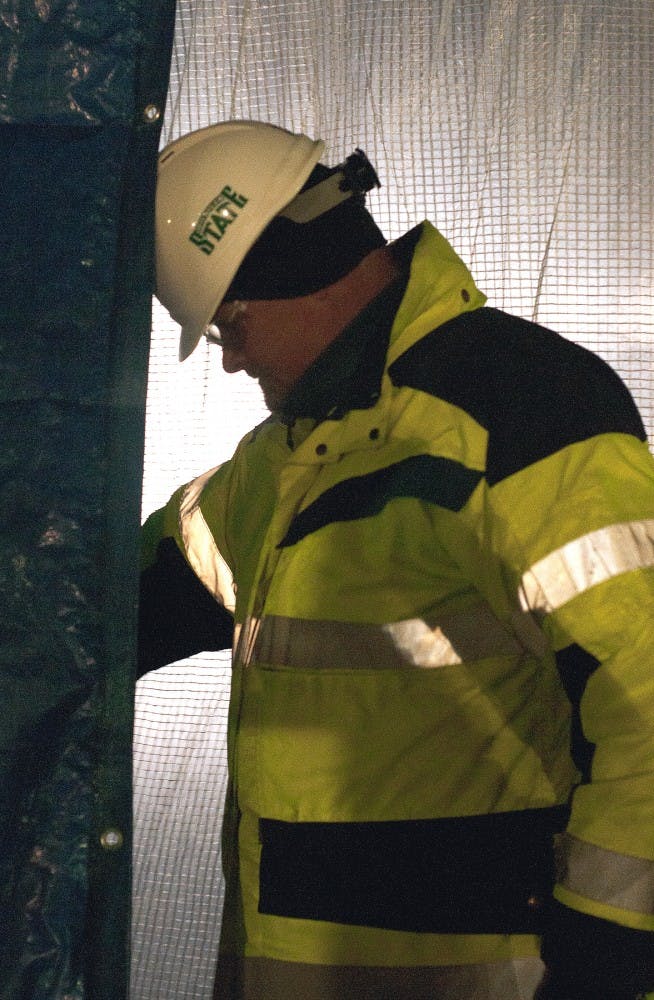Construction workers at MSU’s Facility for Rare Isotope Beams or FRIB, poured concrete for about 25 hours Tuesday as part of the construction for the linear accelerator tunnel — a tunnel that will house rare isotopes moving as fast as half the speed of light.
While the FRIB will not be operational until 2020 or 2022, the concrete poured yesterday was the largest placement of the entire project and used over 350 truckloads of concrete according to a FRIB memo.
It is one of the most important parts of the entire facility, FRIB Conventional Facilities and Infrastructure Division Deputy Director and Project Engineer Chris Thronson said, and the concrete walls will measure 14 feet thick, which will be the thickest on the $730 million site.
The concrete poured was enough to fill an entire olympic sized swimming pool and measures 32 feet underground, according to a FRIB memo.
Rare isotopes are used currently in medicine to treat cancer, and help doctors in biomedical imaging techniques to assess pre-clinical disease.
Also, materials science, chemistry, biology, and earth sciences also rely heavily on stable isotopes to create new nano-materials and polymers, according to a U.S. Department of Energy document titled, The Nation's Needs for Isotopes: Present and Future .
Approximately 1500 scientists from around the globe who are part of the FRIB Users Group will utilize the new FRIB once it is complete and conduct experiments that couldn’t be done anywhere else in the world.
“It’s an opportunity for the world of science to get a better understanding of isotopes and how they can be implemented in society in different fields of science,” Thronson said.
The project is currently eight weeks ahead of schedule and civil construction is planned to be done by 2017, but wont be operational until 2020 or 2022 if there are any issues near the end of construction.
Once complete, it will be the most powerful linear accelerator of its kind, Thronson said.
Support student media!
Please consider donating to The State News and help fund the future of journalism.
Discussion
Share and discuss “350 trucks, 25 hours of pouring — just a portion of FRIB's concrete” on social media.




